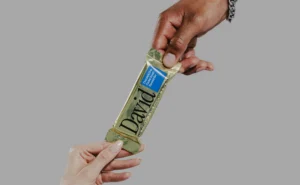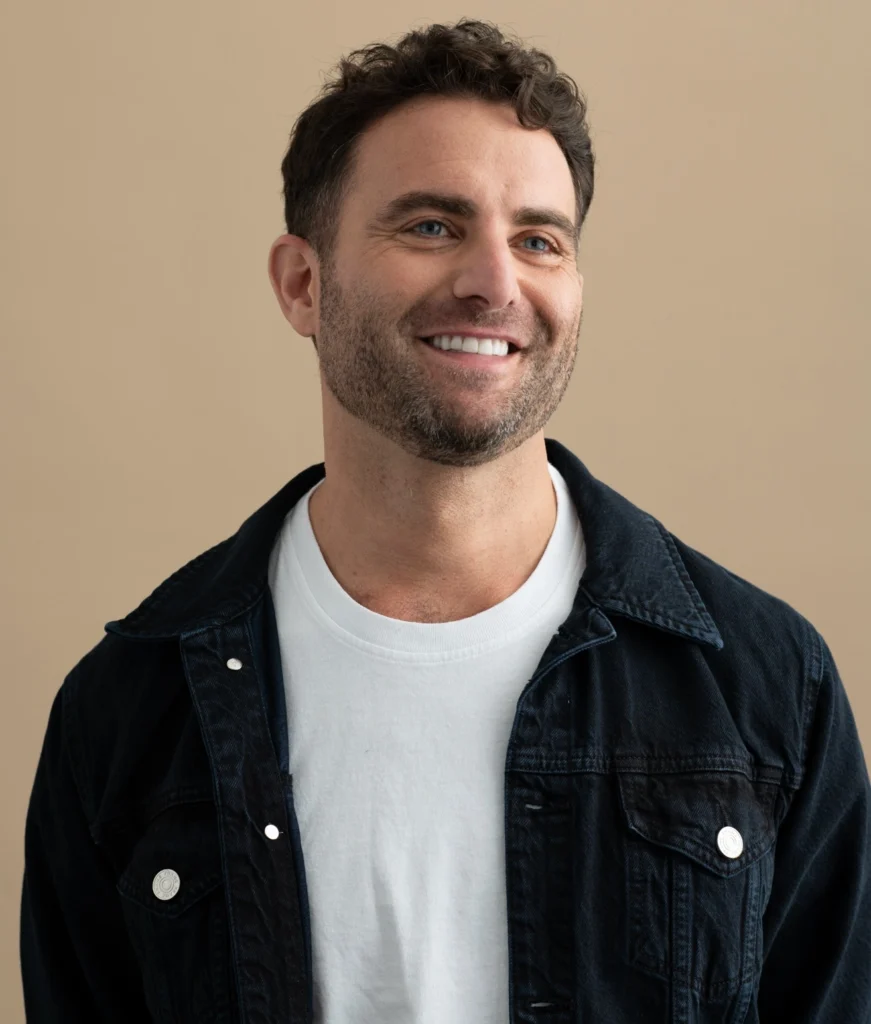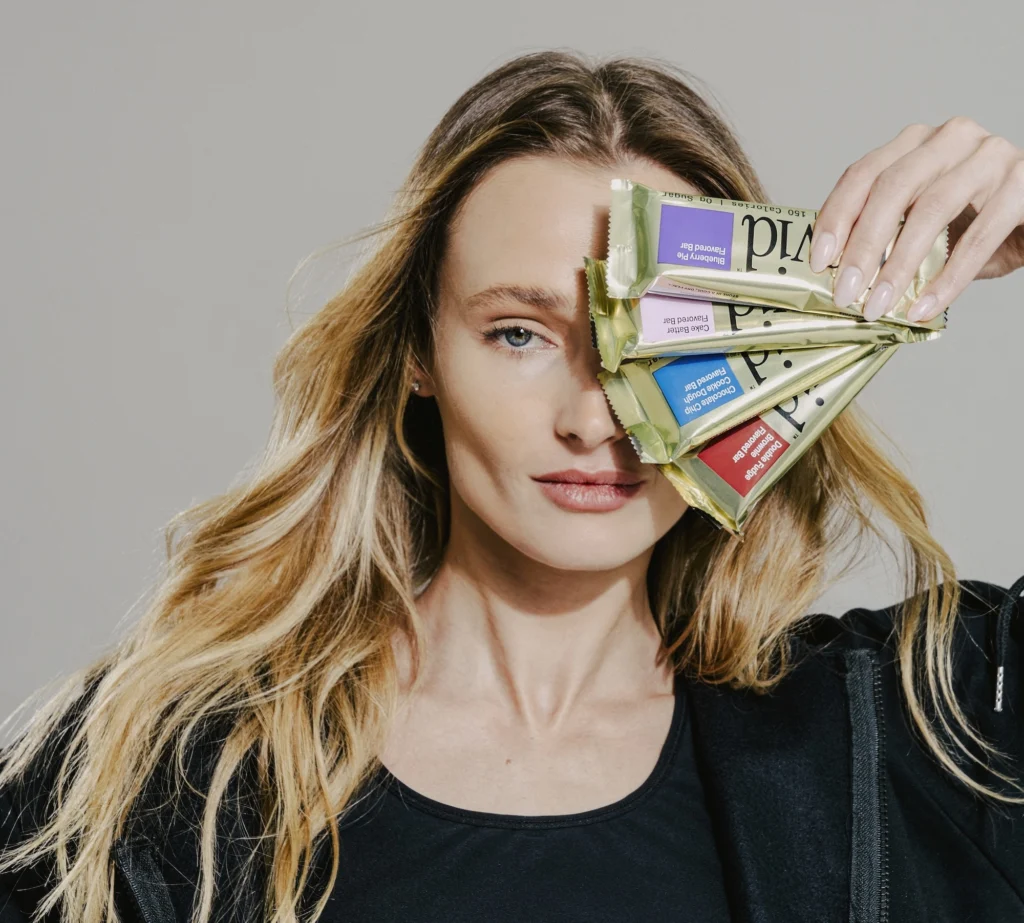
Co-founded by RXBar’s Peter Rahal, David bars pack 28 grams of protein for only 150 calories, a ratio that’s significantly higher than most brands
David, a fast-growing protein bar brand co-founded by RXBar’s Peter Rahal, has raised $75 million in a Series A round as it looks to expand distribution and accelerate product development.
The Series A round was led by Greenoaks with participation from Valor Equity Partners. It comes on the heels of David reeling in $10 million in seed funding last year, bringing the brand’s total amount raised thus far to $85 million.
David will use the new funding to scale manufacturing and expand inventory for its protein bars that pack 28 grams of protein, zero grams of sugar and only 150 calories per bar. It will also use the funding to accelerate product development.
“Our mission is simple: to remove unnecessary calories and sugar from the American diet and replace them with what the body actually needs, which is high-quality protein,” said Rahal, who serves as David’s CEO. “We’re building tools that make it easier to eat well without compromise. The response to David has been overwhelming, and this funding allows us to scale faster and stay focused on our mission of providing solutions to support and improve people’s health and well-being.”

Along with the funding round, David has acquired Epogee, a food technology company that makes EPG (esterified propoxylated glycerol), a plant-based fat alternative that’s touted for its ability to provide flavor with fewer calories. EPG is already a key ingredient in David’s protein bars, which have gained popularity on TikTok and are found on the shelves of an increasing number of convenience and grocery stores across the country.
“Acquiring Epogee strengthens our ability to scale by securing a key ingredient that helps us reduce calories and fat without compromising taste,” Rahal said of the deal. “This is about gaining control over our supply chain to move faster, stay true to our mission and deliver food that improves health.”
Launched by Rahal last September, David has burst onto the scene in the crowded protein-bar category. David bars contain 28 grams of protein for just 150 calories, a protein-to-calorie ratio that’s significantly higher than most bars on the market (other high-protein bars typically contain around 20 grams of protein for around 200 calories).
In its first eight months of commercial operations, David has expanded to over 3,000 retail locations in the U.S., recently striking a distribution deal with East Coast grocery chain Wegmans. The brand says it’s on pace to surpass $100 million in revenue in its first year of operation.
The brand could look to enter mass-market grocery and retail chains like Walmart and Costco soon, although nothing’s been announced on that front yet.

Protein Bar Market Ripe for Disruption?
In an interview with Athletech News that was conducted before the Series A round was announced, Rahal said he created David to fill a white space in the market for a protein bar that was ultra-high in protein while staying low in calories.
Rahal explained that while the protein-bar market might seem crowded at first glance, few if any brands have been able to create a product that mimics the macronutrient balance of whey protein shakes, which are almost 100% protein.
“On the surface, there’s lots of competition, but if you spend a little time and rigor analyzing it from a customer perspective, it’s actually not that competitive. … The reason (consumers) aren’t that happy is they want the macronutrient profile of protein shakes,” said Rahal, who co-founded RXBar in 2013 before selling the brand to Kellogg in 2017 for $600 million.
“People want as much protein and as little other stuff (as possible), and they want it to taste really good,” Rahal added. “Offering 28 grams of protein at 150 calories and zero grams of sugar is a meaningful differentiation.”
For now, Rahal is laser-focused on making David the “number one protein bar in the category,” he says, but David could expand to other protein-packed products in the future.
“Our mission is to design tools that increase muscle and decrease fat, so we have permission to go into other places,” Rahal said. “We just won’t do it unless it is a really differentiated product.”
